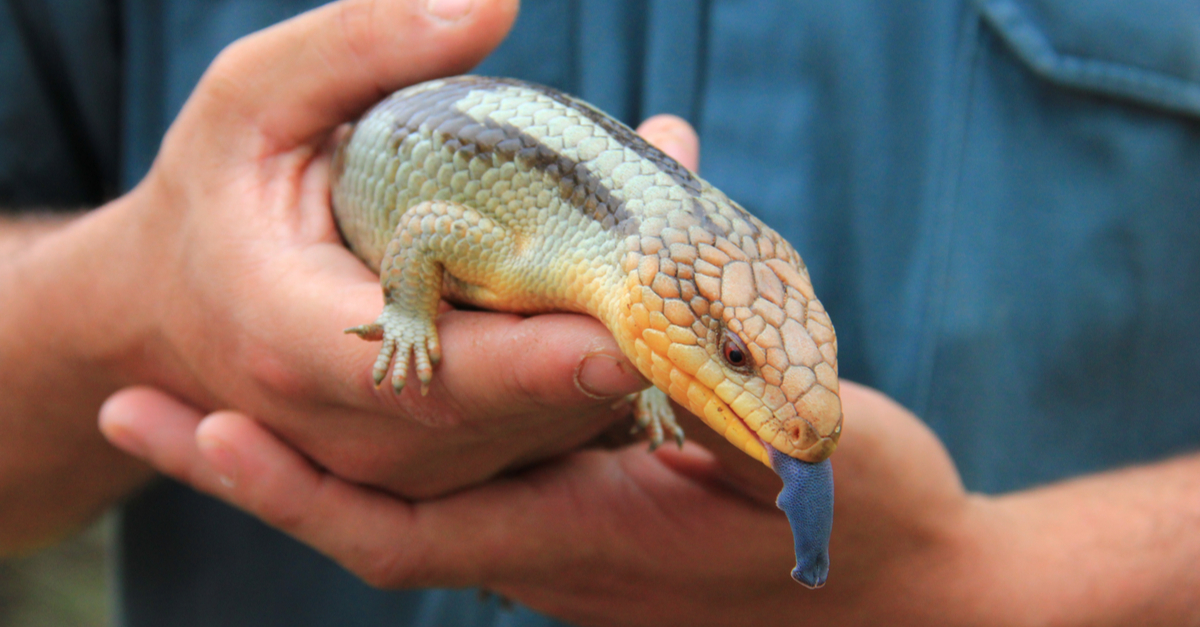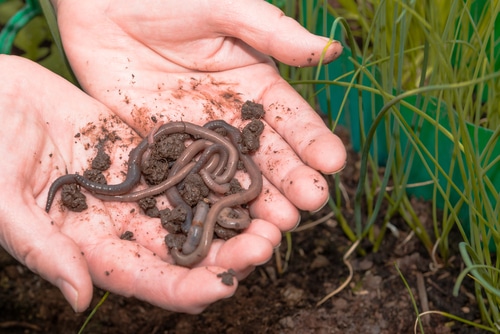Blue tongue skins are a species of the lizard family native to Australia and New Guinea. As their name suggests, their trademark is the characteristic bright blue tongue. In the wild, these animals feed on plants and animals.
Their natural habitat is the semi-desert scrublands and mixed woodland areas. Provided that you give them the care they need, you shouldn’t have problems keeping them as pets.
But can Blue Tongue Skinks Eat Earthworms? And what else should you know about these lizards?
You are in the right place to find out! Keep reading this essential guide. Here, you’ll learn everything you should know about keeping Blue Tongue Skinks as pets and get some tips to plan for your lizards’ diet.
Keeping Blue Tongue Skinks As Pets

You can find blue tongue skins of different colors and patterns. Usually, all are native to Australia and the Indonesian Islands. Because of their popularity, you shouldn’t have problems finding one that suits your taste.
But be careful: some specimens (such as the pygmy lizards) fall under the “endangered species” category due to illegal trade and smuggling. Make sure you take yours from a reliable source.
But despite what you may think, blue tongue skinks make good pets if you know how to take care of them: they are friendly and can create strong bonds with their caregivers under optimal conditions.
However, you must pay attention to giving them what they need to thrive and live comfortably.
For instance, these pets need an enclosure with a constant temperature, suitable humidity, and adequate lighting settings. You’ll need to purchase one of an ideal size to support its growth and add the elements that recreate the natural environment as best as possible.
Plus, you’ll need to provide your skinks with an adequate diet. If you can give your lizards what they need to stay healthy, these creatures can live between 15 to 20 years!
Can Blue Tongue Skinks Eat Earthworms?
Providing your blue tongues with a balanced diet is crucial to keeping your pets healthy. These lizards need plenty of proteins. Young individuals require more than adults to prevent their scales from deforming, but adults need about 50% of their daily intake in the form of protein.
So, you should know which sources work best for these animals.
You can give your skinks fresh meat or eggs, but the best solution is to feed them insects. Indeed, too much meat or eggs might cause problems of obesity.
To stay on the safe side, consider giving them fresh meat or eggs as a treat once a month or so. If you prefer cooking them, don’t forget to avoid adding oil, butter, salts, or dairy products: you might cause your skinks’ digestive issues.
In short, the best protein source for blue tongue skinks is earthworms and other insects. But don’t forget that each individual might have changing preferences about what they like to eat.
Know that your lizard likes the most. Most blue tongue skinks enjoy feeding on locusts, crickets, earthworms, and roaches.
Don’t forget to gut-load the insects for at least 24 hours before giving them to your lizards. If you are buying them in a store, ensure they are gut-loaded.
Fruits and vegetables should also be part of your blue tongue skinks diet. They provide your blue tongue skins with minerals and vitamins that support their growth and development.
Don’t overdo it with fruits, though: the high sugar content might cause obesity and other heart-related problems. Also, don’t forget to go over a list of the toxic fruits and veggies you should avoid giving your skinks!
Can Blue Tongue Skinks Eat Earthworms: The Bottom Line
Blue Tongue skinks can eat earthworms. However, we recommend purchasing gut-loaded varieties for reptiles (and not bait).
Also, avoid collecting them from your garden: they tend to be exposed to toxins and might carry parasites that could harm your pets.
With that said, ensure you provide your skinks with a balanced diet: that and the right growing conditions will extend their lifespan and reduce health problems.
